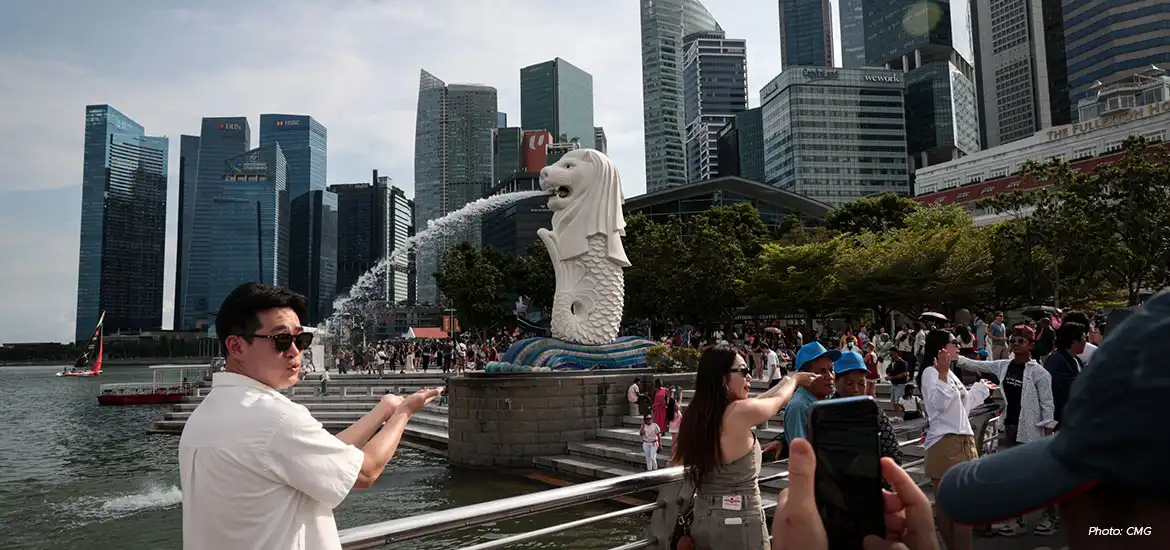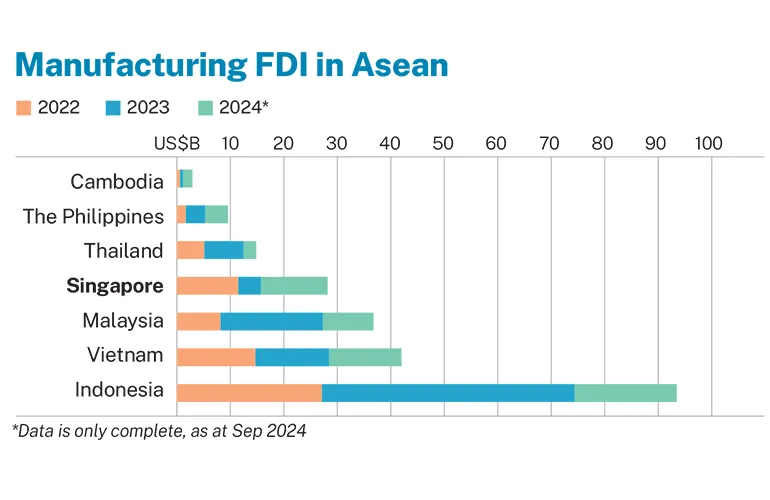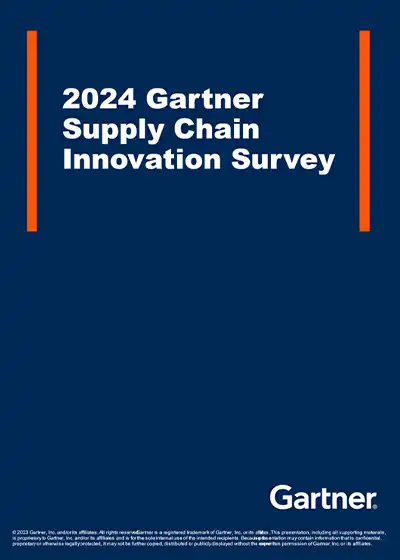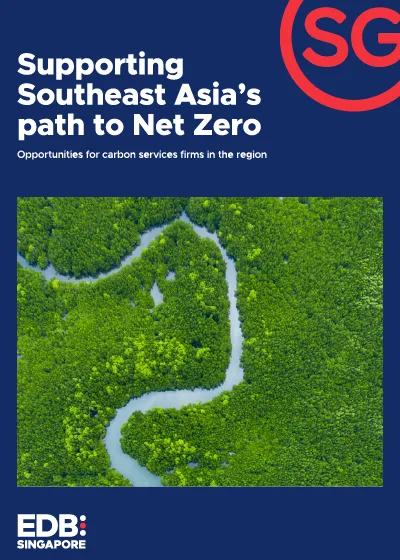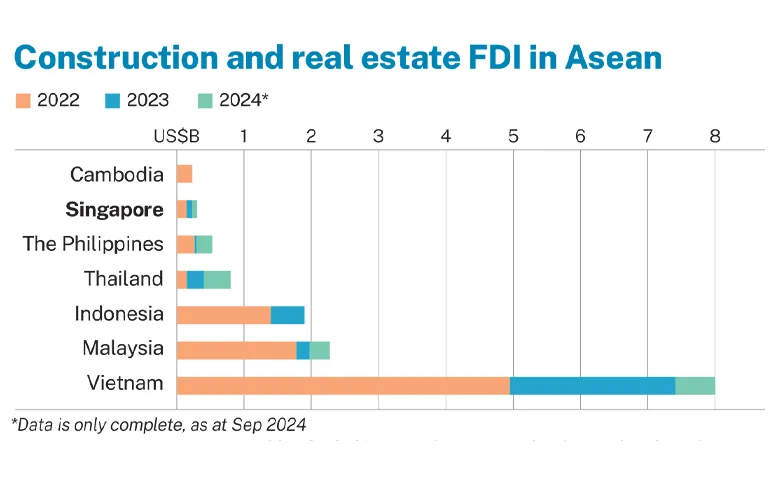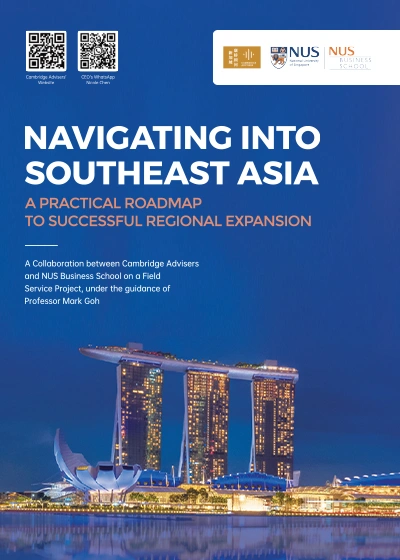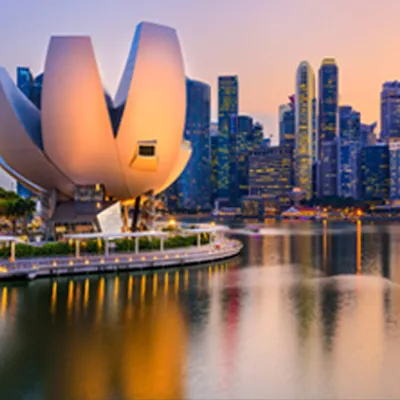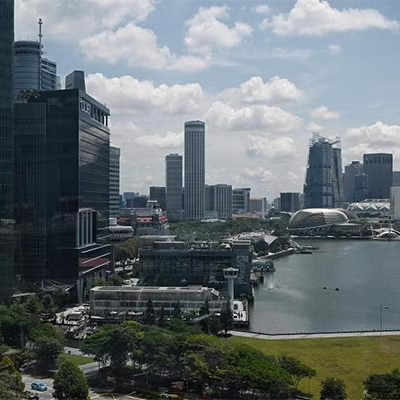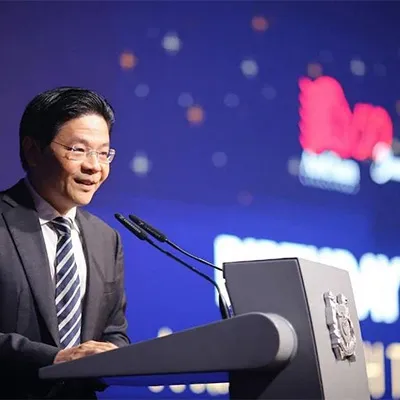Southeast Asia remains a hot spot for global investment, with foreign direct investment (FDI) inflows reaching an all-time high of US$230 billion (S$313.44 billion) in 2023, bucking the global trend.
Manufacturing, infrastructure, real estate, and tourism are among the hottest sectors for FDI in the region, with experts optimistic about the prospects in those areas in the coming year.
Manufacturing
In 2024, the lion’s share of FDI inflows to ASEAN remained concentrated in the cornerstone manufacturing sector, which is poised for growth in key areas such as high-value-added electronics and electric vehicles (EVs).
HSBC ASEAN economist Yun Liu pointed out that many ASEAN countries have bounced back from the severe downturn in the global trade cycle between late 2022 and 2023, supporting the manufacturing sector’s recovery.
From 2022 to September 2024, Indonesia emerged as the hot spot, attracting around US$94 billion in manufacturing investment, GlobalData’s FDI database showed. During this period, China (US$59 billion), Taiwan (US$38 billion), and the US (US$33 billion) were the largest contributors in terms of investment source.
